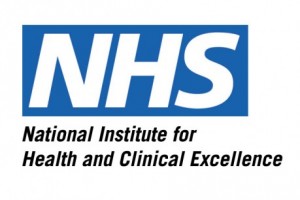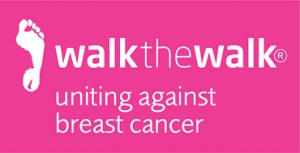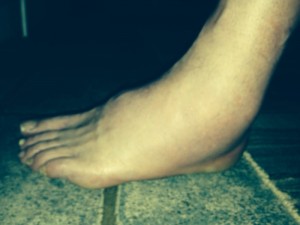Separating fact from fiction – Did you know?
 Since my last article, I have had one of those moments when you are totally stunned by what you hear. And when time is of the essence, you want to pass on that information to as many people as possible; so here I am again.
Since my last article, I have had one of those moments when you are totally stunned by what you hear. And when time is of the essence, you want to pass on that information to as many people as possible; so here I am again.
Did you know that breast cancer was a possible diagnosis for men who find a lump? It is reported that such a lump is almost always painless. It is usually located underneath the nipple and areola (the circle of dark coloured skin surrounding the nipple).
It is important to note that the vast majority of breast lumps are due to a common, non-cancerous condition where male breast tissue becomes enlarged; but it’s always worth getting checked out. Less common symptoms of male breast cancer usually affect the nipple. These can include the nipple begins to turn in on itself, the nipple becomes hard, inflamed, and looks sore, fluid leaking from the nipple. (NHS).
 Other statistics report that the following may be causes of increased risk: Age – most cases in men are diagnosed between 60-70 years of age. Genetics and family history – A genetic mutation BRAC2 has been seen as significant in increased risk of breast cancer. One study carried out in the UK found one in 20 men with breast cancer have the BRAC2 mutation.
Other statistics report that the following may be causes of increased risk: Age – most cases in men are diagnosed between 60-70 years of age. Genetics and family history – A genetic mutation BRAC2 has been seen as significant in increased risk of breast cancer. One study carried out in the UK found one in 20 men with breast cancer have the BRAC2 mutation.
 But at the present time genetic testing isn’t usually carried out by the NHS so another factor to consider is that one in five men who develop breast cancer have a first-degree relative, such as a mother or sister, who has developed breast cancer. High levels of Oestrogen – There is evidence that high levels of the hormone oestrogen, or prolonged exposure to it, can increase the risks of breast cancer in men. Compared to women, men tend to have low levels of oestrogen but there are circumstances that can increase these levels including a hormone treatment to treat prostate cancer; obesity and cirrhosis often caused by long term alcohol misuse. Environmental – occupational hazards reported include working in excessive heat or exposure to certain chemicals like the manufacture of perfume and soaps.
But at the present time genetic testing isn’t usually carried out by the NHS so another factor to consider is that one in five men who develop breast cancer have a first-degree relative, such as a mother or sister, who has developed breast cancer. High levels of Oestrogen – There is evidence that high levels of the hormone oestrogen, or prolonged exposure to it, can increase the risks of breast cancer in men. Compared to women, men tend to have low levels of oestrogen but there are circumstances that can increase these levels including a hormone treatment to treat prostate cancer; obesity and cirrhosis often caused by long term alcohol misuse. Environmental – occupational hazards reported include working in excessive heat or exposure to certain chemicals like the manufacture of perfume and soaps.
Don’t be alarmed breast cancer is much rarer in men than women. Only about 1 in 1,000 men develop breast cancer in their lifetime. Around 350-400 new cases of breast cancer are diagnosed in men in the UK every year. In addition, bilateral breast cancer accounts for only 1.5–2{c8c3b3d140ed11cb7662417ff7b2dc686ffa9c2daf0848ac14f76e68f36d0c20} of Male Breast Cancer (MBC) and simultaneous cancer is extremely rare. (World Journal of Surgical Oncology) But these statistics sometimes may prevent early diagnosis of someone who is younger than the average aged diagnosed male especially if he is fit, a non smoker and with no family history of breast cancer. This description relates to my brother, Mike.
 The following quote was taken from his sponsor page of ‘Walk the Walk’ charity website, 10 days before the 26mile walk in London earlier in May. “Last Friday it was confirmed that I, a 57 year old male GP, have breast cancer. With some luck and persuasion I have been allowed to walk – thanks Nina. This charity is obviously even more important now to all of us…” Previously his wife was doing the marathon walk to mark her retirement from General Practice; a fellow GP.
The following quote was taken from his sponsor page of ‘Walk the Walk’ charity website, 10 days before the 26mile walk in London earlier in May. “Last Friday it was confirmed that I, a 57 year old male GP, have breast cancer. With some luck and persuasion I have been allowed to walk – thanks Nina. This charity is obviously even more important now to all of us…” Previously his wife was doing the marathon walk to mark her retirement from General Practice; a fellow GP.
During Jill’s years in Practice she had been consulted by so many women who have had to face the diagnosis of breast cancer. She wanted to recognise their courage, bravery and determination as well as that of their nearest and dearest. The least she could do, she said was to walk for them accompanied by 7 colleagues from our practice in Greens Norton. In the end with Nina’s help, the founder of the Moonwalk grant making Breast Cancer charity Mike also joined the team. Nina gave up her place for him to take part in the event, to raise awareness in MBC and with amazing support achieve over £9000 in sponsorship and as a whole team over £15k.
 This is the effect of 26+ miles on Mike’s dodgy left ankle, he fortunately managed a speedy recovery with rest, ice, elevation and physiotherapy the morning after the marathon. The walk was very tough for the whole team but of course especially Mike who only had a chance to train a week before the event, with not ideal conditions and taking them 9 hours to complete, it was much harder than they expected but the whole team pulled through. Mike said, “I can tell you that this was no ordinary challenge, it was tougher than the 3 marathons I have done and also the Cycle to Paris last year!” that he did to raise money for Parkinsons UK
This is the effect of 26+ miles on Mike’s dodgy left ankle, he fortunately managed a speedy recovery with rest, ice, elevation and physiotherapy the morning after the marathon. The walk was very tough for the whole team but of course especially Mike who only had a chance to train a week before the event, with not ideal conditions and taking them 9 hours to complete, it was much harder than they expected but the whole team pulled through. Mike said, “I can tell you that this was no ordinary challenge, it was tougher than the 3 marathons I have done and also the Cycle to Paris last year!” that he did to raise money for Parkinsons UK
Since the Moonwalk, Mike has undergone surgery bilaterally as after further investigation cancer was found on both sides, shocking his consultants as it is so unusual especially with no family history or risk factors. So please spread the word so gentlemen know that this is something to watch out for. Early detection is the key to the best prognosis possible.
Hoping the sun shines for you,
Best wishes
Sarah Greenhalgh

